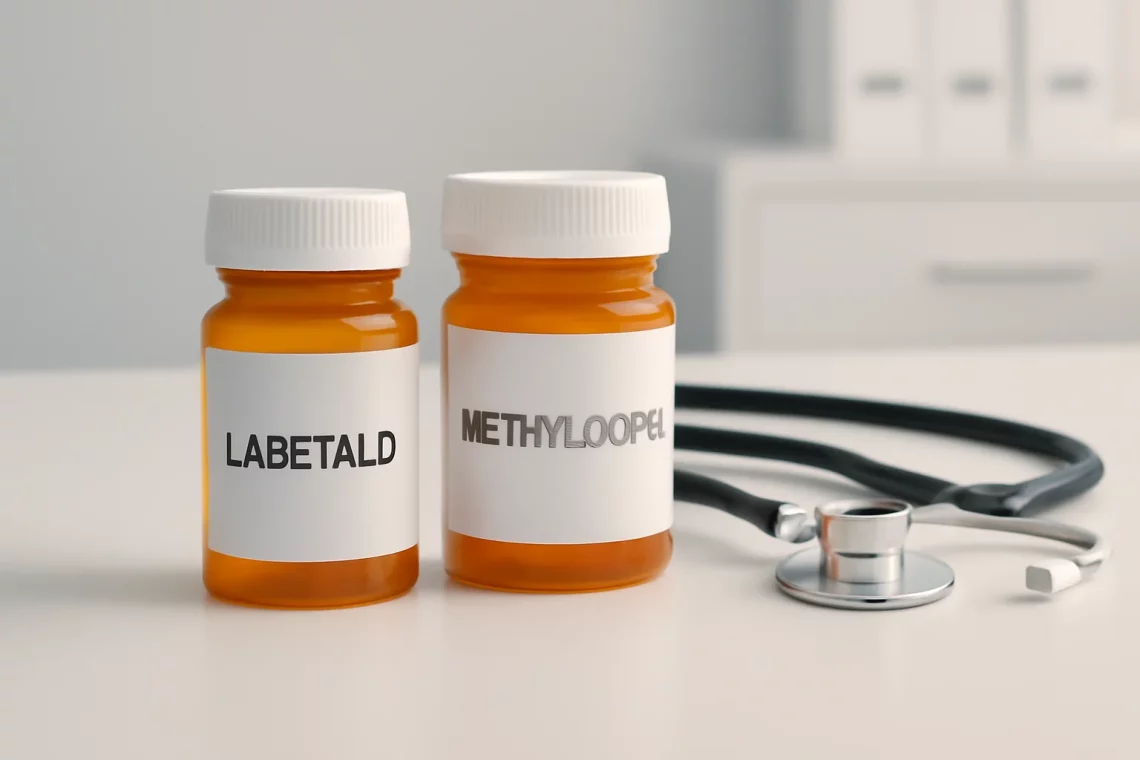Health
-
Naltrexone vs Campral: Choosing the Right Treatment for Alcohol Dependence
The journey toward recovery from substance use disorders can be challenging, often requiring a multifaceted approach that combines therapy, support, and sometimes medication. Among the various options available to individuals seeking to overcome alcohol dependence, two medications, Naltrexone and Campral, have emerged as popular choices. While both aim to assist individuals in their recovery journeys, their mechanisms of action, side effects, and suitability for different individuals can vary significantly. Understanding these medications is crucial for individuals, families, and healthcare providers involved in the treatment of alcohol use disorder. As awareness of addiction and its treatment continues to grow, so too does the need for informed decisions regarding the use of…
-
Opdivo vs Yervoy: A Comprehensive Comparison of Cancer Treatments
In recent years, the field of oncology has witnessed significant advancements, particularly in immunotherapy. Among the various treatment options available, Opdivo and Yervoy have emerged as two prominent therapies for several types of cancer. Both drugs are designed to harness the body’s immune system to fight cancer cells, but they operate through different mechanisms and are often used in conjunction with one another. Opdivo, known generically as nivolumab, is a monoclonal antibody that blocks a protein called PD-1, which cancer cells exploit to evade detection by the immune system. By inhibiting PD-1, Opdivo enhances the ability of T-cells to recognize and attack cancer cells. On the other hand, Yervoy, or…
-
Labetalol vs Methyldopa: Which is Better for Managing Hypertension?
Hypertension, commonly known as high blood pressure, is a significant global health concern that affects millions of individuals. It is often dubbed the “silent killer” due to its asymptomatic nature, which can lead to severe complications if left untreated. Effective management of hypertension is crucial to prevent cardiovascular diseases, stroke, and other life-threatening conditions. Among the various classes of antihypertensive medications available, labetalol and methyldopa have gained attention for their unique properties and applications in treating high blood pressure, particularly in specific populations such as pregnant women. Labetalol, a combined alpha and beta-blocker, has been widely used due to its dual mechanism of action, which effectively lowers blood pressure by…
-
Gabapentin or Pregabalin: Which is Right for Your Pain Management?
Gabapentin and pregabalin are two medications widely used in the management of various neurological and pain disorders. Both belong to a class of drugs known as gabapentinoids, which primarily function by modulating the release of certain neurotransmitters in the brain. The therapeutic effects of these medications have made them popular choices for treating conditions such as neuropathic pain, fibromyalgia, and even epilepsy. Despite their similarities, gabapentin and pregabalin have distinct pharmacological profiles, side effects, and indications that can influence a healthcare provider’s choice between the two. In recent years, there has been a growing interest in understanding the nuances between gabapentin and pregabalin. Patients often find themselves faced with choices…
-
Clonazepam vs Diazepam: Which Medication is Right for You?
Clonazepam and diazepam are two medications that fall under the category of benzodiazepines, a class of drugs commonly prescribed for their sedative, anxiolytic, and muscle-relaxant properties. These medications have been widely used in the treatment of various conditions, including anxiety disorders, panic attacks, and seizures. Despite their similarities, clonazepam and diazepam have distinct differences in their pharmacological profiles, indications, and side effects, which can influence the choice of one over the other in clinical practice. Understanding these differences is essential for patients and healthcare professionals alike, as it can guide effective treatment strategies tailored to individual needs. Both medications work by enhancing the effects of a neurotransmitter called gamma-aminobutyric acid…
-
Losartan vs Valsartan: Choosing the Right Medication for Hypertension
Losartan and Valsartan are two commonly prescribed medications that belong to a class of drugs known as angiotensin receptor blockers (ARBs). These medications are primarily used to manage hypertension and heart failure, providing significant benefits for those affected by these conditions. With rising rates of cardiovascular diseases globally, understanding the role and differences between these medications is increasingly important for patients and healthcare providers alike. Both Losartan and Valsartan function by blocking the action of a hormone called angiotensin II, which causes blood vessels to constrict. This action leads to lower blood pressure and reduced workload on the heart. Despite their similar mechanisms, there are nuances in their pharmacological profiles,…
-
Amoxicillin vs Zithromax: Key Differences and Uses Explained
The world of antibiotics is vast and complex, with various medications designed to treat different types of bacterial infections. Among the most frequently prescribed antibiotics are Amoxicillin and Zithromax, both of which are widely used in the medical field. While they share the common goal of combating bacterial infections, their mechanisms of action, spectrum of activity, side effects, and specific applications set them apart. Understanding the differences between these two medications is crucial for both healthcare providers and patients. Each antibiotic has its unique characteristics that make it more suitable for certain infections. The choice between Amoxicillin and Zithromax can significantly influence treatment outcomes, highlighting the importance of appropriate antibiotic…
-
Lexapro vs Effexor XR: Choosing the Right Antidepressant for You
Lexapro and Effexor XR are two commonly prescribed medications for the treatment of mood disorders, particularly depression and anxiety. As mental health awareness continues to grow, so does the interest in understanding the various options available for managing these conditions. These medications belong to different classes of antidepressants, each with its unique mechanisms of action, side effects, and benefits. In today’s fast-paced world, many individuals seek effective treatment options to help them cope with the challenges of daily life. The choice between Lexapro and Effexor XR can significantly impact a patient’s journey toward mental wellness. Understanding the differences and similarities between these two medications is essential for making informed decisions…
-
Loratadine vs Diphenhydramine: Which Antihistamine Is Right for You?
Loratadine and diphenhydramine are two commonly used antihistamines that play a crucial role in managing allergy symptoms. They are both effective in alleviating conditions such as hay fever, allergic rhinitis, and other allergic reactions. While they serve a similar purpose, the way they work and their side effects can vary significantly, making it essential for users to understand the differences between them. Antihistamines function by blocking the action of histamine, a substance in the body that causes allergic symptoms. However, there are two primary categories of antihistamines: first-generation and second-generation. Diphenhydramine falls into the first-generation category, while loratadine is classified as a second-generation antihistamine. This distinction is essential for users,…
-
Lexapro vs Wellbutrin: Choosing the Right Antidepressant for You
The landscape of mental health medications is broad and diverse, with various options available to help individuals manage their conditions. Among these, Lexapro and Wellbutrin stand out as popular choices for treating depression and anxiety. While both medications aim to alleviate symptoms of mood disorders, they belong to different classes of antidepressants and work through distinct mechanisms in the brain. Understanding the nuances of these medications can empower patients and their healthcare providers to make informed decisions about treatment options. As mental health continues to gain recognition, it is essential to explore the efficacy, side effects, and overall patient experience associated with different medications. Each person’s journey with mental health…





































